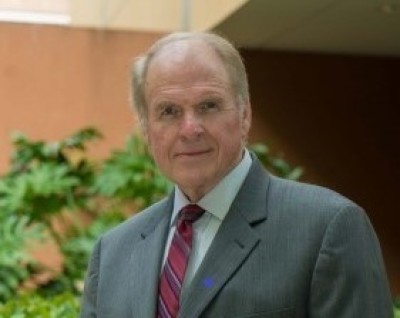Harvard and the crisis of transcendence
The recent appointment of an atheist as the chief chaplain at Harvard University reveals the contemporary crisis of transcendence that says there is no Transcendent Being who created us, redeemed us, and therefore to whom we and our institutions are ultimately accountable.
Everything can be worked out on the horizontal scale, according to this idea.

General Douglas MacArthur did not believe that when given the stupendous task of “re-imagining” Japan after the Second World War. “It must be of the spirit if we are to save the flesh,” said the General.
Mitsuo Fuchida was living proof of MacArthur’s belief.
I was born December 5, 1941, two days before the Japanese attack on Pearl Harbor with Fuchida as the lead pilot. Thus, in 1967 I could hardly believe that Fuchida had brought the sermon at First Baptist Church, Mobile, Alabama, and that I was shaking his hand.
Following the war Fuchida gave his life to Christ, influenced through a tract written by Jacob DeShazer, a former American POW in Japan who had returned as a missionary.
One of the first issues MacArthur had to confront was that Japanese culture did have a “transcendence” that was a major part of the problem. The emperor was regarded as a god. Thus, among MacArthur’s hardest tasks was that of convincing the emperor to renounce his deity, which he did.
It matters who sits on the throne of transcendence.
What Japan needed in 1945 in the aftermath of war, today all the nations need. For example, Professor Luigi Zingales, of the University of Chicago, believes that Big Tech expansion poses “a threat... to the function of our democracy... they use the best minds to manipulate our decisions...”[1]
Zingales’ immediate concern is for regulation that would prevent the incursion of AI and other technologies into our personal lives and freedoms.
That issue is much larger than the mere need for laws constraining technology. This is a spiritual concern now, as MacArthur recognized in his day regarding Japan.
It brings the broader realization that something respected as Ultimate must limit those who would grab for transcendent rule over us. It will either be True Transcendence, the recognition of God’s authority, or the imposition of human control.
“A culture that does not aspire to the divine becomes obsessed with the fascination of evil, reveling in the frivolous, the depraved, and the bestial,” says economist and AI expert George Gilder.[2]
What we regard as ultimate authority—transcendence—is truly a matter of life and death. We must have True Transcendence if we are to be free and secure in our liberties.
MacArthur knew the history of the USA. Though some American founders were deists they embraced a transcendent worldview that all humans are “created equal” and endowed by their Creator with rights that are “inalienable”—beyond alteration and cancellation. Government exists to protect those transcendently given rights. Therefore, those who govern are accountable to Transcendent God above all.
It was slaveholder Thomas Jefferson who fretted at the thought of God’s transcendence and human accountability, and wrote: “I tremble for my country when I reflect that God is just: that His justice cannot sleep forever...”
Sadly, in our times many have embraced the view of the ancient Greek philosopher, Protagoras: “Man is the measure of all things.” Catholic political scientist Daniel J. Mahoney sees this as the “central heresy” in our time. To deny that the human has a spiritual and political nature is an “ideological lie” of “protean character,” thinks Mahoney.
Without “the moral law, human beings will invent a moral law, albeit one that is arbitrary, confused, and confusing, even to its enforcers,” writes David P. Deaval.[3]
This raises ominous issues regarding, for example, artificial intelligence. In what Charles Taylor and others describe as the “eclipse” of transcendence, what moral constraints are being programmed into the electronic systems? True conscience is a matter of the spirit. Where, then, is the locus of conscience in the machine?
Without a centering on True Transcendence, we will only fulfill St. Paul’s prophecy that in the “last days” people will be “lovers of money, boastful, arrogant, slanderers, disobedient to parents, ungrateful, unholy, unloving, irreconcilable, malicious gossips, without self-control, brutal, haters of good. treacherous, reckless, conceited, lovers of pleasure rather than lovers of God, holding to a form of godliness, although they have denied its power...” (2 Timothy 3:1-5)
The late Cambridge scientist Stephen Hawking believed his findings had ruled out the need for a transcendent God as Creator of the universe. On the other hand, John C. Lennox, Oxford bioethicist and Professor Emeritus of Mathematics, hopes that reading his book, God and Stephen Hawking, will lead readers “to believe in the God who not only made the universe but also conferred on you the immeasurable dignity of creating you in His image.” (p.100)
The undeniable fact is that Human beings made in the image of God need transcendence in spirit and soul as much as we do oxygen in our bodies. If we reject True Transcendence (that I with millions of others believe is revealed in Jesus Christ of Nazareth and through the Bible), then we will start inventing our own “transcendent” beings, whether in the form of all-knowing gadgets, or a combination of human and machine, or sheer imagery.
The Bible calls all that idolatry.
[1] Should We Regulate Big Tech?”, by Luigi Zingales (Imprimis: A Publication of Hillsdale College, November 2018, Vol.47, No.11), 3.
[2] Glenn H. Utter, Culture Wars in America: A Documentary and Reference Guide (Greenwood, 2009), 73.
[3] Daniel J. Mahoney’s book is The Idol of Our Age: How the Religion of Humanity Subverts Christianity (Encounter Books, 2018).
Wallace B. Henley’s fifty-year career has spanned newspaper journalism, government in both White House and Congress, the church, and academia. He is author or co-author of more than 20 books. He is a teaching pastor at Grace Church, the Woodlands, Texas.
For media inquiries, contact: [email protected]




























